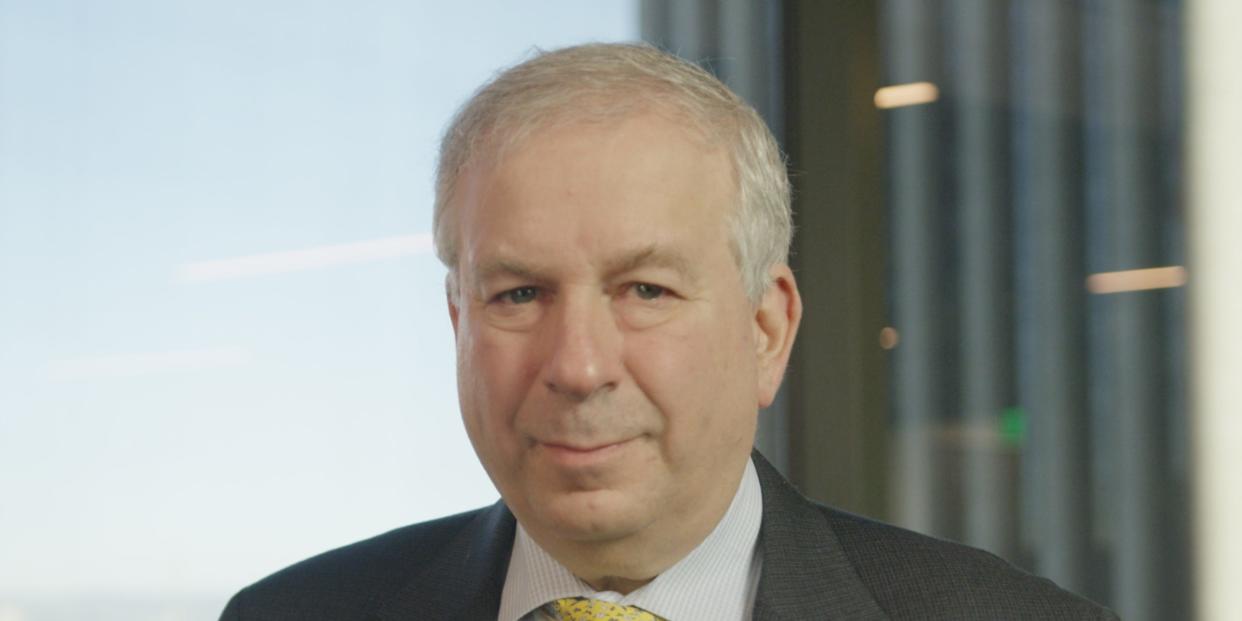Brace for a 'crash landing' as the US economy barrels toward recession, top economist David Rosenberg warns

David Rosenberg has warned the US economy is headed for a "crash landing" or major downturn.
The veteran economist cited the Philly Fed's manufacturing survey, a proven recession indicator.
Rosenberg told Insider in February that the S&P 500 could plunge 25% from its current level.
Don't hold out hope for a mild downturn, as the US economy looks set to suffer a severe recession, David Rosenberg has warned.
"Take a good hard look at this chart and tell me we are heading into a 'soft' or 'no' landing," he tweeted on Thursday. "More like a 'crash' landing."
The veteran economist was referring to the Philly Fed's monthly survey of manufacturers, which recorded its seventh consecutive negative reading in March. More than 34% of the firms surveyed reported declines in activity, and both new orders and shipments hit their lowest levels since May 2020.
Rosenberg attached a chart showing the metric has unfailingly plunged during each of the past eight recessions.
"Philly Fed at a level that is 8 for 8 on the recession call and with no head fakes," Rosenberg said.
—David Rosenberg (@EconguyRosie) March 16, 2023
The Rosenberg Research president and former chief North American economist at Merrill Lynch has been sounding the alarm on financial markets and the economy for a while.
"One added sign that Powell's finally drained the last ounce of punch out of the bowl," he tweeted earlier this week, referring to Fed Chair Jerome Powell. He was commenting on the fact that stocks didn't rally, despite mounting expectations that the Fed won't hike interest rates this month.
"Smacks of a crisis of confidence," he added in another tweet this week.
Rosenberg recently told Insider that the inflation threat has faded, and a US recession is virtually guaranteed. He also warned the S&P 500 could plummet by nearly a quarter from its current level to around 3,000 points, and house prices might bottom 25% below their peak last year.
Inflation spiked to a 40-year high last year, spurring the Fed to raise interest rates from nearly zero to upwards of 4.5% over the past 12 months. Higher rates lift borrowing costs and encourage saving over spending, which can curb the pace of price increases.
However, they can also temper demand, increase unemployment, and drag down asset prices, boosting the chances of a recession. Moreover, they can put pressure on banks' bond holdings, as bond prices move inversely to interest rates. That was a factor in the market-shaking collapse of Silicon Valley Bank last week.
Read the original article on Business Insider

 Yahoo News
Yahoo News 
